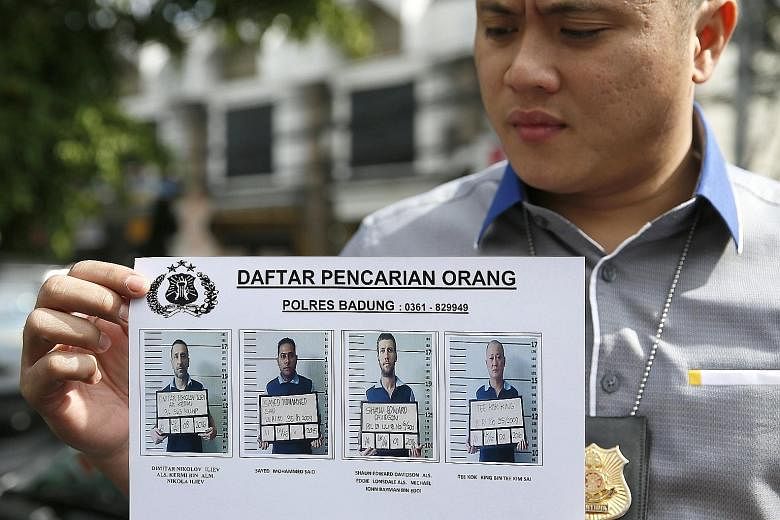A Bali prison break by four inmates last Monday has again shone the spotlight on longstanding issues of overcapacity and understaffing at Indonesia's correctional facilities.
The challenge of securing over 200,000 inmates in fewer than 500 prisons in the country was further highlighted when a warden said he could not guarantee the safety of a high-profile detainee.
"His life may be threatened," said Cipinang prison chief Abdul Ghani, when asked why his facility could not hold the outgoing Jakarta governor Basuki Tjahaja Purnama, who was jailed for two years last month for blasphemy.
Mr Ghani last Wednesday declined to take custody of Basuki, who will likely serve out his sentence instead in a detention cell at a police camp in Depok, West Java.
Security risks at state penitentiaries have led certain observers to urge the government to review mandatory prison terms for some minor offences and consider implementing alternative penalties.
Studies by Jakarta-based policy think-tanks like the Institute for Criminal Justice Reform (ICJR) have found a strong correlation between overcrowded prisons and escape rates.
Some 300 of the country's 497 correctional facilities are said to be overcrowded as the prison population continues to grow.
In 2013, there were 163,279 inmates in facilities meant for 108,186.
Lawmaker Akbar Faizal told Parliament earlier this month the number has risen to 219, 925.
The Straits Times understands that there are only about 16,500 prison officers in the country. As they are rostered on different shifts, only 3,650 officers are on duty at any one time. This means an average ratio of about one officer to 55 inmates, making the task of closely monitoring all prisoners almost impossible.
Two of the four escaped convicts from Kerobokan Prison were caught in Dili, Timor Leste, more than 1,000km from Bali, last Thursday. Still at large are Australian Shaun Edward Davidson and Malaysian Tee Kok King.
The jailbreak came after about 400 inmates broke out from Sialang Bungkuk detention centre in Pekanbaru, Riau, on May 5.
"Looking at the conditions, it is only normal to see prison guards helpless in preventing prison breaks," ICJR executive director Supriyadi Eddyono told Gres News, an Indonesian political and legal news portal.
Structural problems within the prison system will continue to hamper efforts not only to rehabilitate criminals but also to deradicalise convicted terrorists, a study last year by the Institute for Policy Analysis of Conflict said.
Tempo magazine, in an editorial last month, noted that the Justice and Human Rights Ministry wants to outsource the management of prisons to the private sector, but there have been no takers just yet.
The ICJR believes the government has made matters worse by refusing to fix an archaic criminal justice system where 1,154 crimes come with prison sentences.
"The government has never evaluated the objectives of punishing criminals (by sending them) to prison," said Mr Supriyadi.
Mr Akbar agrees, adding that Indonesia needs to consider new ways to punish criminals.
"Can we change the mindset such that imprisonment is not necessarily always the principal punishment?"

